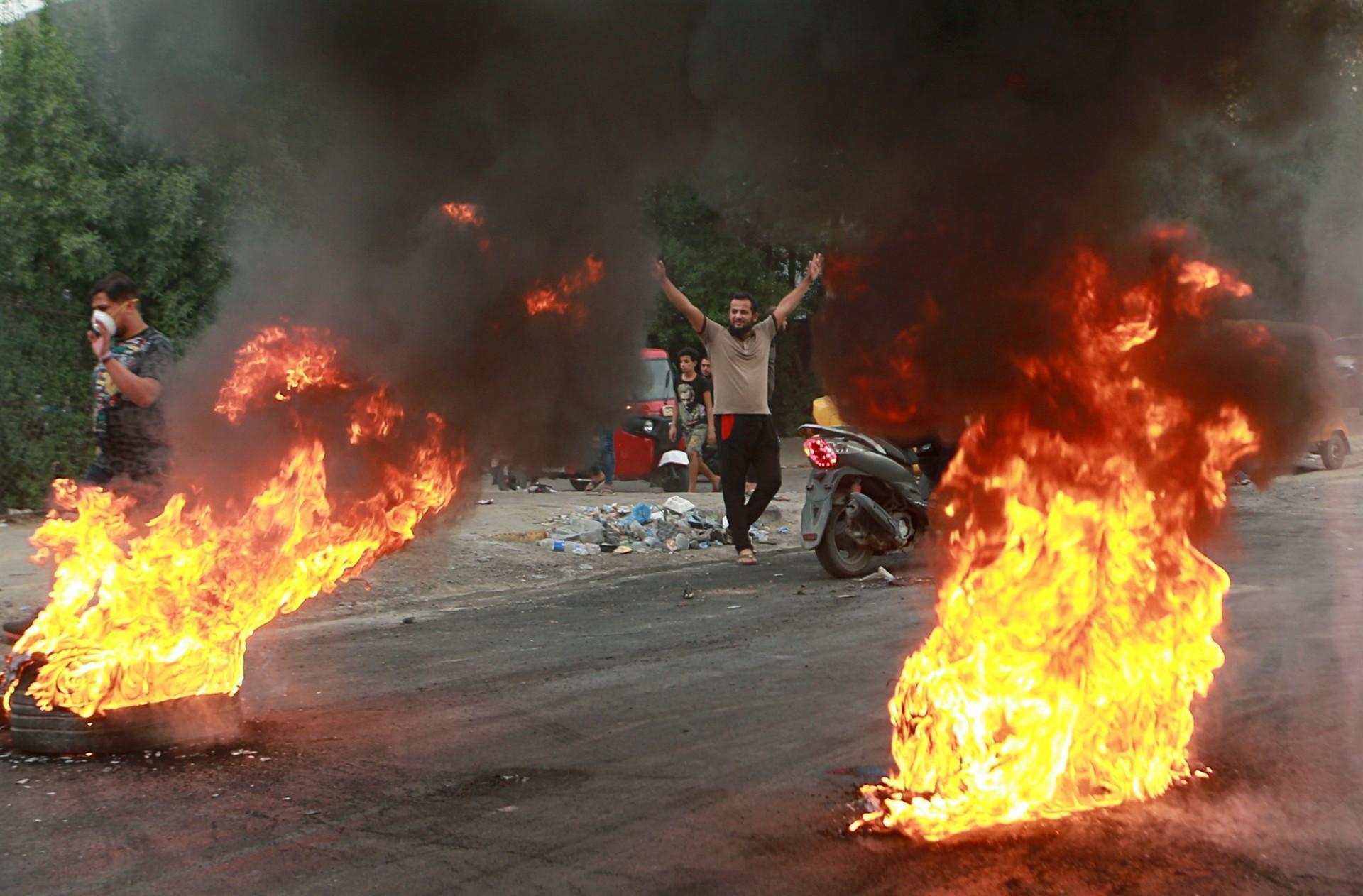
US Secretary of State Mike Pompeo has condemned deadly violence during protests in Iraq and called on the country's government to "exercise maximum restraint," the State Department said on Oct. 8.
In a call with Iraqi Prime Minister Adil Abdul Mahdi, Pompeo "condemned the recent violence in Iraq and noted that those who violated human rights should be held accountable," the department said in a statement.
"The secretary lamented the tragic loss of life over the past few days and urged the Iraqi government to exercise maximum restraint.
"Pompeo reiterated that peaceful public demonstrations are a fundamental element of all democracies, and emphasized that there is no place for violence in demonstrations, either by security forces or protestors."
Demonstrations in Iraq began with demands for an end to rampant corruption and chronic unemployment but escalated with calls for a complete overhaul of the political system.
They were unprecedented because of their apparent spontaneity and independence in a deeply politicized society, and have also been bloody -- with more than 100 people killed and 6,000 wounded in one week.
Iraq's parliament held its first session on Oct. 8 after a week of anti-government protests that left dozens dead and sparked a political crisis the country's president said required a "national dialogue".
Security restrictions were lifted around Baghdad's Green Zone, where government offices and embassies are based.
Morning traffic was at normal levels and an internet blackout in place for most of the past week appeared to ease.
More than 200 parliamentarians arrived for an extraordinary session called by speaker Mohammed al-Halbusi, defying expectations that they would not meet quorum.
MPs hosted several ministers to discuss the demonstrations, which erupted one week ago in Baghdad before spreading to the country's Shiite-dominated south.
The session followed a failed attempt on Oct. 5, when parliament's largest bloc, including the 54 MPs led by populist cleric Moqtada al-Sadr, boycotted the session.
Sadr threw his weight behind the protests last week and called on Prime Minister Adel Abdul Mahdi to resign, but the embattled premier has held on and suggested his own string of reforms.
On Oct. 8, Abdul Mahdi held marathon meetings with Halbusi, the cabinet, tribal chiefs, and the country's top justice over the demonstrations, with his office's statements insisting life had "returned to normal" after a week of bloody demonstrations.
But it remains to be seen whether Halbusi and Abdul Mahdi's suggestions would be enough to appease protesters, who have repeatedly said they had "nothing left to lose" and scoffed at overtures by political and religious figures.